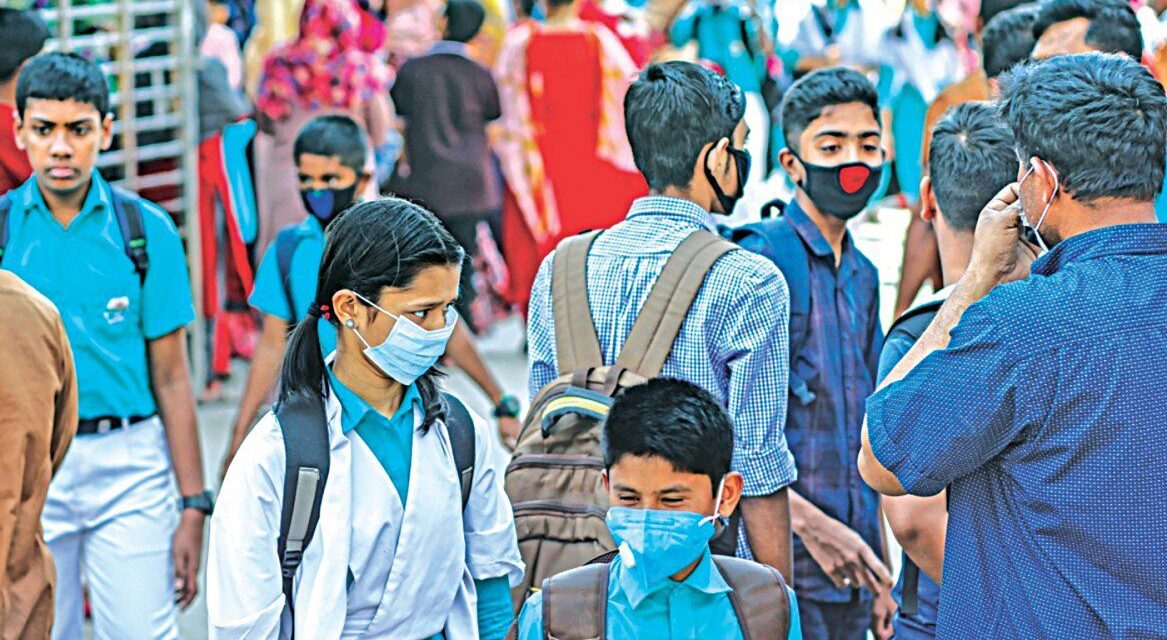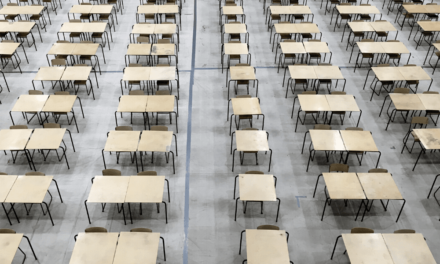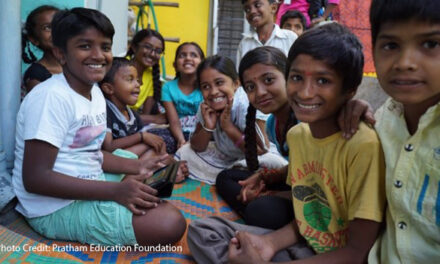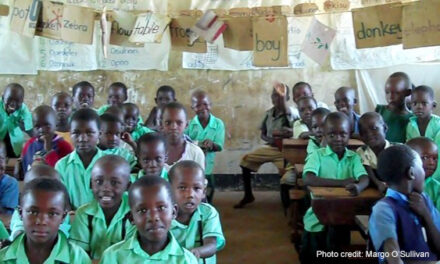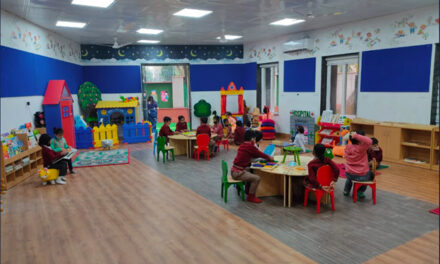This article was written by Dr Manzoor Ahmed, professor emeritus at Brac University and Vice-chair of CAMPE. It was originally published in the Bangladesh Daily Star on 31 May 2020.
15 percent of national budget must go to education recovery
We have to talk about the post-corona time, even though Bangladesh has not reached the peak in infection and deaths caused by the pandemic. It will come to an end or at least limp to a decline in the near future. Meanwhile, we have to design a smart national response and a recovery plan. Protecting the fragile progress in children’s education must be a part of the smart national recovery.
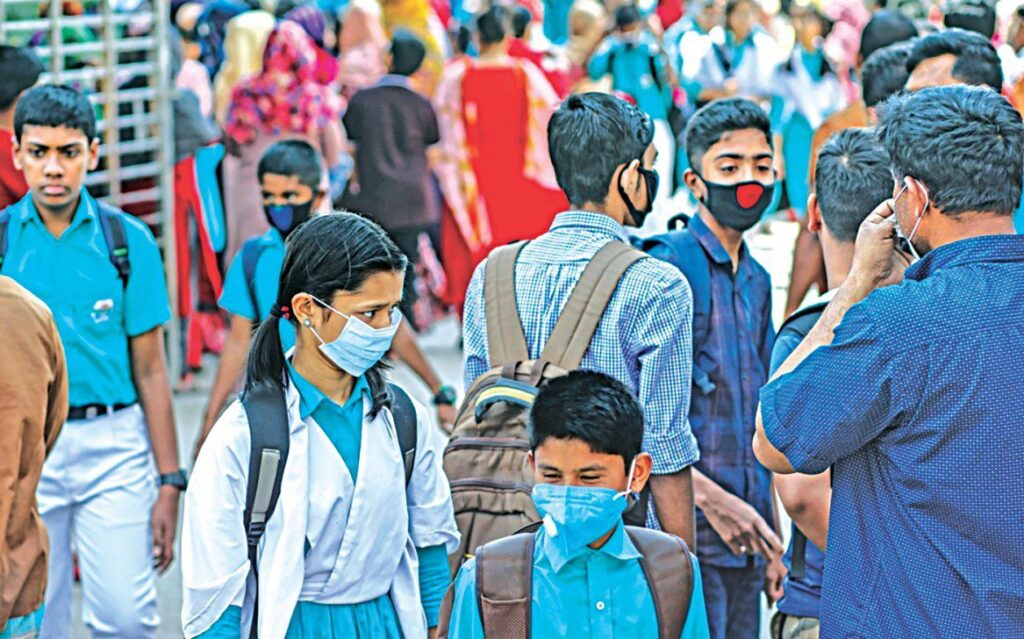
A three year education recovery plan is needed to protect the recent progress and prevent setting back children’s education due to the pandemic’s impact. PHOTO: RASHED SUMON
Campaign for Popular Education (CAMPE) undertook a rapid survey of the field situation on Covid-19 education impact. The aim of the online survey carried out between mid-April and mid-May was to gauge the perception of these education stakeholders on the situation and its impact and implications.
Responses were received from 115 NGOs engaged in education activities and 11 teachers’ organisations. The findings of the survey and recommendations based on it were shared in a webinar on May 18.
The survey revealed serious concerns about the risk of reversal of the progress made in recent years in education and setting back the efforts on the quality, equity and inclusion objectives. The findings pointed to long-standing weaknesses in the education system which have been aggravated now by the crisis.
Dropout of children from school would rise according to 85 percent of respondents. Child labour will increase hampering education of children, thought 71 percent respondents. Eighty percent felt absenteeism and irregular school attendance would rise. Seventy percent respondents found teachers of non-government schools, the vast majority at the secondary level and at least a third at the primary level, are in deep anxiety about not receiving salaries or even losing their job.
Analysing the respondents’ perception of problems and priorities, the study team recommended measures for protection and recovery of the education system. Two main areas of actions proposed are about a medium term recovery plan and the necessary budgetary support for this plan.
School closure is likely to continue until September, if not longer, wiping out much of the school year. The economic, health and psychological effects on students, teachers and families are such that it cannot be a matter of going back to the old routine when the pandemic subsides. A three year education recovery plan is needed to protect the recent progress and prevent setting back children’s education due to the pandemic’s impact.
The fragilities of the system laid bare by the closure of schools and the difficulties of reaching and supporting students should be reflected in the recovery strategy. The recovery has to take us to a “new normal” that mitigates the pre-existing weaknesses now exposed, rather than take us back to business-as-usual that left many children poorly served.
The post-pandemic recovery plan should emphasise teaching and learning, including extra classes (offering support to schools and incentives to teachers for this purpose). The disruption of academic calendar, completing lessons, adjusting exams and adjusting vacations should focus on recouping the loss of learning time, and ensuring student’s return to school and participation in learning—not just going back to the old routine.
The focus must shift away from public examinations and testing (such as PECE at the end of grade 5 and JSC at the end of grade 8) and many formal periodic examinations in the school. The next round of these may be cancelled or held in an abridged form. It should be remembered that the school’s primary job is to support students to learn; testing is secondary and must not distract students and teachers from learning. Secondary level public examinations (GCE) has been cancelled this year in UK as have been semester and school exams in many school districts and universities in USA.
If public examinations must be held, they need not be for all the subjects in the curriculum. They can be on fewer key subjects such as Bangla and math for PECE and Bangla, English, math and science for JSC; on a 100-marks paper for each subject, completing the total examination in a short time.
A similar approach can be followed for SSC and HSC exams and considered as a strategy for examination reform. An expert committee appointed by the Ministry of Education made recommendations in 2018 along this line, but these have not received due consideration.
Expanding scope of school meal, stipends, health check and mentoring of students were recommended. Md Fashiullah, Director General, Directorate of Primary Education, noted that the amount of monthly stipends for primary education students is to be raised by about 50 percent.
Investments should be made on making online and ICT-based learning a regular feature in schools. ICT infrastructure, connectivity, broad-band access, availability of devices such as tablets, ed-tech support and ed-tech training for teachers are necessary for this purpose. Asif Saleh, Executive Director of Brac, speaking at the webinar, mentioned plans for multiple shifts and a blended approach (mixing on-line and face-to-face instruction) for schools Brac runs.
Plans should be made for all education institutions to become free wi-fi hotspots for students and teachers. A collaboration among the telecommunication regulatory agency (BTRC), mobile phone providers, A2I project of the Ministry of Science and Technology and the education authorities is urgently needed to this end.
The non-formal education programmes for the dropout and those never enrolled in school need to be strengthened. Tapan Kumar Ghosh, Director General, Bureau of Non-Formal Education said that 100,000 out-of-school students in a “second chance” programme are not able to continue their study at present and the start for a new cohort of 250,000 students is delayed due to the crisis
It was recommended that at least 15 percent of the new national budget for 2020-21 should be allocated to education to support the education recovery plan, particularly for the elements noted above. Khondaker Golam Moazzem, Reseach Director at Center for Policy Dialogue, supported the recommendation and urged increase both in development and recurring budgets for education. He said this was not the time to cut back the education budget as “lesser priority” or “non-essential” expenditure.
It has been suggested that the success of the recovery plan and proper use of extra funds lie in proper implementation of the proposed steps. Effective implementation would require decentralised planning and management of total primary and secondary education in each upazila involving local administration and close collaboration with non-government and civil society organisations.
Policy support for a “new normal” that serves students better than in the past would be a silver lining in the darkness. Ms Aroma Datta, MP urged at the webinar that the findings and recommendations of the survey be brought to the attention of the prime minster and discussed with the Minister of Education, Dr Dipu Moni.

